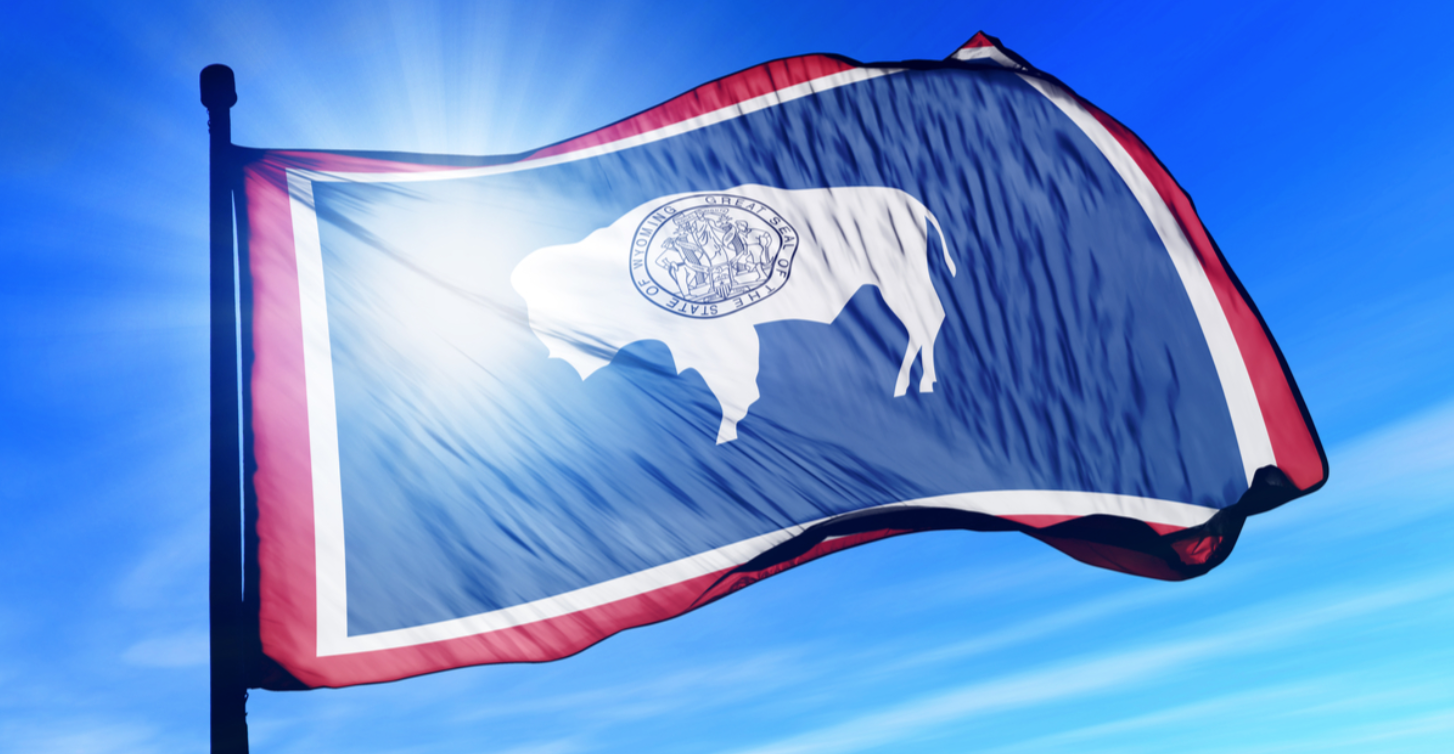
By Jasmine Hall
Wyoming Tribune Eagle
Via- Wyoming News Exchange
CHEYENNE — Stakeholders had the weekend to sit with the final decisions announced Friday by Gov. Mark Gordon on several pieces of legislation passed during the recent general session.
Their reactions were divided, as Wyoming became the first state to ban the use of abortion pills and followed others in prohibiting transgender girls from competing in high school sanctioned sports.The governor also allowed another anti-abortion bill to become law without his signature and backed the “Wyoming Prescription Drug Transparency,” while using his line-item veto authority on sections of it.
Three of the four of the bills Gordon addressed Friday will go into effect July 1. Only the “Life is a Human Right Act” became effective immediately, although a hearing will be held this week in a lawsuit that could lead to a stay on its implementation.
Some stakeholders are preparing for what they perceive are negative impacts of the bills that became law, while others argue certain bills aren’t doing enough.
Then there are those who are celebrating success.
Gordon emphasized his pro-life position after signing Senate File 109 into law. The bill prohibits chemical abortions in the state, and makes it unlawful to “prescribe, dispense, sell or use any drug for the purpose of procuring or performing an abortion on any person.”
Although the bill clarifies the ban doesn’t apply to the administration of contraceptives, treatment of miscarriage, preserving a woman from imminent peril or if the pregnancy is the result of rape or incest — it solidifies the state’s position that no kind of abortion shall be permitted.
The governor also allowed House Bill 152 to go into law, but without his signature.
He said in a letter to Secretary of State Chuck Gray that he understood the Legislature’s effort to improve Wyoming’s pro-life legal framework and clarify legal questions brought up by the previous “trigger ban” bill, but it was “not a substitute for an expression of the people when it comes to constitutional matters.”
Sponsors of SF 109 and HB 152 didn’t respond to requests for comment.
Wyoming Right to Life President Marti Halverson told the Wyoming Tribune Eagle on Monday her organization was happy to see the bills become law. She said whether the governor saw fit to sign them or not is of no concern to her group.
Halverson added they were disappointed there would be legal challenges to the bills, but it was expected.
“The positive impact will be that more of our Wyoming neighbors will be born, rather than killed,” she said.
Alliance Defending Freedom, a nonprofit conservative group that works to outlaw abortion, also made its support known. Senior counsel Denise Burke said in a prepared statement that the “Life is a Human Right Act” affirmed the value of every innocent human life.
“We are glad that Wyoming continues to eagerly protect life and enact laws that seek to preserve the lives of children and protect the wellbeing of their mothers,” she said. “All states — including Wyoming — have valid interests in preserving unborn life, as well as a duty to protect the health and safety of women.”
Dr. Giovannina Anthony, who performs medical abortions at Wyoming’s Health and Family Care in Jackson, fell on the other side of the issue.The clinic doesn’t provide surgical abortions and provides a range of women’s health services, including obstetrics, gynecology, prenatal care, infertility care and family practice.
She said she had to start canceling abortion appointments with patients Monday morning due to the immediate effect of HB 152 and said women were hysterical on the phone with her.
“Honestly, a few patients even took it personally from the Legislature and the governor — ’Why are they making me do this?’” she said. “The only patient who did not respond with really strong emotion … stated that she had the means and could travel elsewhere. And so I get the feeling that it is the women who can’t afford to travel or do not have the means, or the logistics are just too complex for them to travel, who responded in this way.”
Anthony said she had a difficult time processing the governor’s statement that he has a strong record of protecting the lives of the unborn, as well as their mothers. She believes legislation such as these abortion bans will place mothers in danger, create doubt and hesitation on managing pregnant patients, and have a chilling effect on the recruitment and retention of OBGYNs in the state.
Although she appreciated his comments on the need for a constitutional amendment and separation-of-powers concerns, she said she didn’t know how he could let HB 152 go into law.
“I just don’t understand how the state can intrude on people’s lives, on a matter that even our leadership is so unsettled right now,” she said. “I find that really disturbing.”
Anthony is among the plaintiffs who filed a lawsuit against the state Friday to block the new abortion ban under the “Life is a Human Right Act.”Teton County District Judge Melissa Owens scheduled an emergency hearing for Wednesday at 1 p.m. to hear arguments for a proposed temporary restraining order.
The American Civil Liberties Union of Wyoming sent out a statement Friday voicing its opposition to the two anti-abortion bills. Officials said they found the legislation prohibiting medication abortions and the additional ban on abortion care with limited exceptions to be unconstitutional.
“A person’s health, not politics, should guide important medical decisions — including the decision to have an abortion,” said ACLU of Wyoming Advocacy Director Antonio Serrano. “Abortion is safe, common and essential. Deeply private, personal and unique decisions about abortion should be made by pregnant people in consultation with their doctors — who should be able to treat their parents according to their best medical judgment.”
Serrano said Gordon’s choices were disappointing, but they will continue “to challenge efforts contrary to our right to make our own reproductive health care decisions.”
The ACLU of Wyoming advocacy director also commented on Senate File 133, which Gordon indicated he will allow to become law without his signature. It would bar public high school students of the male sex to compete in an athletic activity or team designated for students of the female sex, and designate a commission under the Wyoming High School Activities Association to approve the eligibility of students to compete if there is a stay on the ban due to litigation.
Gordon criticized the bill in a four-page letter to the secretary of state, and described it as “overly draconian” and discriminatory.
“While I freely acknowledge the intent of this legislation is well-meaning as a way to protect the integrity and fairness of women’s sports in our state, by enacting an outright ban on transgender individuals participating in sports teams, I believe Wyoming sends a harmful message that these individuals and their families do not deserve the same opportunities as others,” he wrote.
Serrano said the legislation was not about leveling the playing field for student-athletes, but rather “erasing and excluding trans people from participation in all aspects of life.”
Wyoming Equality held the same opinion in its statement released Friday night, and Director Sara Burlingame said they were confident the law will recognize the Wyoming Constitution’s stance on no discrimination between students based sex, race or color.
“The Bostock decision clearly stated that gender identity was encompassed in the definition of sex,” she said in a statement. “The tragedy is, we haven’t had to rely on court cases and statutes in the past: we’ve treated our children with the dignity, respect and individuality that all Wyoming students deserve.”
Wyoming Equality included comments from a mother of a transgender teen in Wyoming, and Brandi S. said it was frightening to know there was only so much that parents could do to protect their children.
“God made our children, and our belief is that God does not make mistakes. God gave us this child and trusts us to raise her with his supreme guidance,” she said. “We will be seeking that guidance, as well as our Wyoming-made values, as we consider joining a lawsuit to protect our daughter and ensure that her constitutionally protected rights are enforced.”
Bill sponsor Sen. Wendy Schuler, R-Evanston, told the WTE she doesn’t agree with the criticisms expressed by the governor and opponents, but she was glad he decided to allow it to pass into law. She said there is no doubt it would have given the bill more credence if he had signed it, but she understands his perspective. She said she always looks at both sides of the issue, and she recognized that so did he.
“I don’t consider it draconian. I don’t consider it discriminatory,” she said of the bill. “What I consider discriminatory is the fact that our girls wouldn’t have a fair opportunity when they have to compete against transgender females — because we don’t know what level of transition they’re in.”
In the wake of stakeholders announcing their intention to pursue a lawsuit, Schuler said she is glad she didn’t listen to those who believed the commission should be removed from the bill.
She said there had to be a backfill if the legislation was litigated, and this will provide a better process than what the Wyoming High School Activities Association currently has in place. Schuler said it is a neutral commission that can provide uniformity in decisions.
“That brings back the fairness,” she said.
Gov. Gordon took action on a fourth bill before the veto deadline, which was the “Prescription Drug Transparency Act,” sponsored by Sen. Lynn Hutchings, R-Cheyenne.
He signed the bill into law after exercising his line-item veto authority on portions that could have had significant impacts on prescription costs for Wyoming consumers, while still noting its “important policy changes related to rural, independent pharmacists, a critical component of health care in Wyoming.”
Gordon said in a statement that he acknowledged the importance of rural independent pharmacies and the burdens placed on small businesses.
This is why he said he assigned a governor’s directive for the Wyoming Department of Administration and Information (A& I) to negotiate a payment of an increased amount of dispensing fee claims of up to $10 per brand label claim and $12 per generic brand label claim to independent pharmacists participating in the Wyoming state employees’ and officials’ group insurance program.
“This issue is so important to Wyoming, our communities and our future that I implore health insurance providers to follow in our footsteps,” he said. “Together, working in unison, we can make a difference in our communities and keep local businesses operational while ensuring quality access to vital healthcare services.”
The governor received pushback from a small business association, which argued in a press release sent out Monday that he “neutered” the bill.
National Federation of Independent Business Wyoming State Director Tony Gagliardi said he was disappointed in Gordon for removing key parts that “aimed to throw back the curtain on how pharmacy benefit managers (PBMs) price prescription drugs.”
In August of 2022, a special survey of Wyoming NFIB members found that 67% were in favor of having PBMs disclose their pricing methods to pharmacies and customers.There was also overwhelming support for Wyoming residents to have a right to choose their pharmacy.
“It would have been nice to see the governor stand up to the pharmacy benefit manager (PBM) lobby,” he said. “Senate File 151 could have assured the stabilization of the pharmacy industry in Wyoming. Instead, the governor chose to listen to PBM lobbyists, who convinced him to use his line-item veto authority to let them continue their backroom deal-making. He basically gutted the bill of those issues important to independent pharmacies.”





